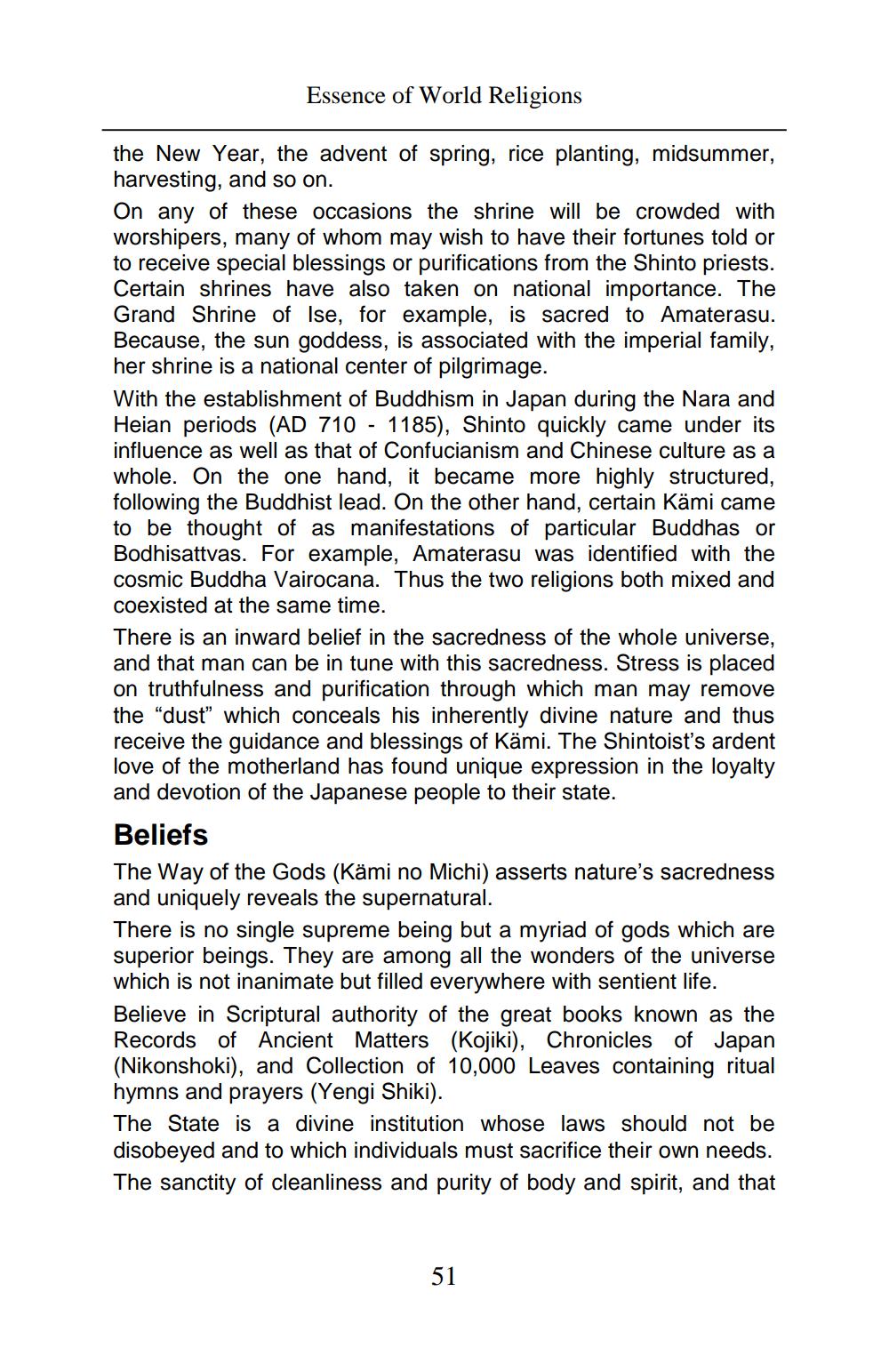________________
Essence of World Religions
the New Year, the advent of spring, rice planting, midsummer, harvesting, and so on.
On any of these occasions the shrine will be crowded with worshipers, many of whom may wish to have their fortunes told or to receive special blessings or purifications from the Shinto priests. Certain shrines have also taken on national importance. The Grand Shrine of Ise, for example, is sacred to Amaterasu. Because, the sun goddess, is associated with the imperial family, her shrine is a national center of pilgrimage.
With the establishment of Buddhism in Japan during the Nara and Heian periods (AD 710 - 1185), Shinto quickly came under its influence as well as that of Confucianism and Chinese culture as a whole. On the one hand, it became more highly structured, following the Buddhist lead. On the other hand, certain Kämi came to be thought of as manifestations of particular Buddhas or Bodhisattvas. For example, Amaterasu was identified with the cosmic Buddha Vairocana. Thus the two religions both mixed and coexisted at the same time.
There is an inward belief in the sacredness of the whole universe, and that man can be in tune with this sacredness. Stress is placed on truthfulness and purification through which man may remove the "dust" which conceals his inherently divine nature and thus receive the guidance and blessings of Kämi. The Shintoist's ardent love of the motherland has found unique expression in the loyalty and devotion of the Japanese people to their state.
Beliefs
The Way of the Gods (Kämi no Michi) asserts nature's sacredness and uniquely reveals the supernatural.
There is no single supreme being but a myriad of gods which are superior beings. They are among all the wonders of the universe which is not inanimate but filled everywhere with sentient life.
Believe in Scriptural authority of the great books known as the Records of Ancient Matters (Kojiki), Chronicles of Japan (Nikonshoki), and Collection of 10,000 Leaves containing ritual hymns and prayers (Yengi Shiki).
The State is a divine institution whose laws should not be disobeyed and to which individuals must sacrifice their own needs. The sanctity of cleanliness and purity of body and spirit, and that
51




